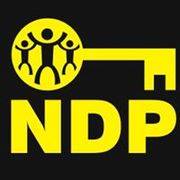In our tradition, we regard the anniversary of independence as an occasion for celebration. But, we also see it as the perfect time to take stock of where we are and consider where we are going. A time when we look back with clarity and objectivity at significant moments and events, at the real trajectories in our social, economic and political life and ask: what do we have to celebrate on this our national birthday?
I believe that if a reputable pollster were to gauge public opinion on the matter, the overwhelming sentiment would be that our country is heading down the wrong path. The general view would be that, instead of a positive transformation, we have witnessed in this 21st century an unprecedented decline in our economic, social, political, moral and physical conditions. Our decaying physical infrastructure, roads, bridges, schools, public buildings, health facilities, police stations, and coast guard facilities are in plain view for all to judge. It seems not to matter to those in government that repairing and maintaining public infrastructure would not only improve their performance but would also create jobs and grow the economy. Economic policymaking does not get any simpler than this! But, the government does not appear to grasp that basic point.
In absolute and relative terms, our economy is underperforming. Ill-informed and misguided policies have eroded our economic base and impeded our productive and competitive abilities. For example, our banana industry was destroyed, not by external forces over which we had no control, but by a hapless and entirely misinformed policy whereby the government, which had formerly functioned as regulator and supporter of banana farmers, took control of the industry from the farmers, who were the real expert in the business! This policy decision had deleterious and entirely predictable consequences; the local banana industry has effectively died. Today, not a single hand of banana is exported to the United Kingdom! This, while neighboring St. Lucia and Dominica enjoyed a robust resurgence in banana production because the governments there had the good sense to do the sensible thing of supporting the farmers and letting them continue to run the industry. They did not take away control as was done here.
As agricultural production declined, our food imports skyrocketed, worsening our balance of payments position and bringing social ills in the form of lifestyle diseases, diabetes, hypertension, heart disease, cancer – driven by consumption of imported processed foods. These health problems have now swelled to alarming proportions. Meanwhile, inadequate investment in health services has compounded the problem from the other side, so that our country today has a greater need for health care services but a reduced capacity to deliver them. The well-being of our people is declining, and ordinary folks fear the day that they might end up at Milton Cato Memorial Hospital
Our reality is a clear and frightening example of how systemic and chronic mismanagement can fuel economic decline. Poor policy decisions and mismanagement in one area can have negative knock-on effects in others and make bad situations worse. But, the story of underperformance of our economy does not stop there. The other consequences of poor economic policymaking and management are also in plain view of Vincentians: high and ever-increasing taxes; the lowest wages in the OECS; massive unemployment; and unconscionably high government debt to the domestic private sector. The last of these ills has forced business closures and made local building contractors afraid to do business with the government. The result has been more unemployment and a worsening of our economic crisis, further exacerbated by a virtually crippled indigenous financial sector. We now know that a lack of financial discipline and poor management of the public sector’s finances since 2001 led directly to the sale of the National Commercial Bank. Its repurchase is no proof of redemption. For practically identical reasons, the NIS has been strained to its limit, the full effect of which is yet to be revealed.
The picture gets worse when we consider that a fundamental responsibility of any government is to protect its citizens and we are failing in that too. Today, without precedent in our beloved country, we witness with alarm and horror the man-made crisis that is the swelling tsunami of violent crime and corruption. Our people now live in constant fear of violent crime. It is scary and worrying that in these early years of the 21st century, our country has suffered the highest rates of sexual violence (including offenses against children) in the entire English-speaking Caribbean and the highest rates of homicide and gun-related crime in the Eastern Caribbean. Yet, despite these serious threats to the existence of peaceful society, no action is taken by those in power to reassure the public. In face of this growing man-made disaster, fostered and fed by a pervasive decline in standards, beginning at the top, official platitudes have replaced substance. The government has abandoned its responsibility to protect and has retreated into meaningless and evasive rhetorical excursions. And now, at our anniversary of national independence, the conclusion is inescapable: crime and the causes of crime have the upper hand in St. Vincent and the Grenadines. It is evident to all who have eyes to see that the government has breached its contract with the people, as it no longer works for their benefit.
In mature, civilized societies, various institutions play important roles and work to prevent and correct the damage caused by systemic corruption, ineptitude or dictatorial tendencies in government. But, in today’s St. Vincent and the Grenadines, these institutions are weak. And trade unions have been undermined and emasculated by a government that has consistently transacted with them in bad faith. The Unity Labour Party regime has failed Vincentians miserably.

